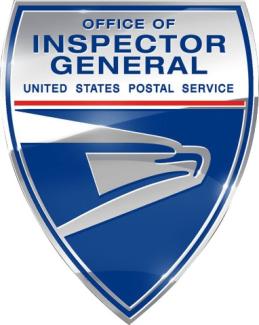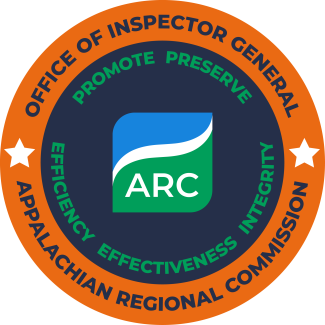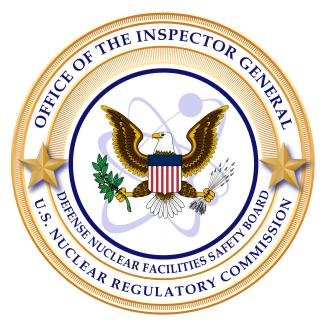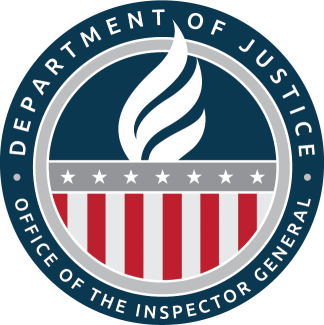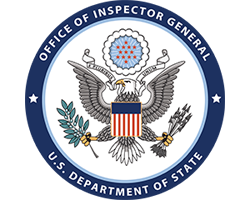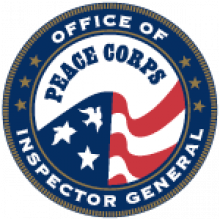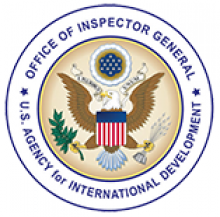06/17/2014
U.S. Postal Service
Environmental Compliance Review Closeout Process
Audit
Agency-Wide
View Report
View Report Highlights
Submitting OIG
U.S. Postal Service OIG
Number of Recommendations
1
Report Number
HR-AR-14-003
06/17/2014
Department of Housing and Urban Development
SAR 71 - Semiannual Report to Congress for period ending March 31, 2014
Semiannual Report
Agency-Wide
View Report
View Report Highlights
Submitting OIG
Department of Housing and Urban Development OIG
06/16/2014
Appalachian Regional Commission
Campbell County Business Incubator
Audit
View Report
View Report Highlights
Submitting OIG
Appalachian Regional Commission OIG
Report Description
The audit objectives were to determine whether program funds were managed in accordance with the ARC and Federal grant requirements
Number of Recommendations
2
Report Number
OIGRpt14-28
06/16/2014
Nuclear Regulatory Commission
Audit of NRC's Freedom of Information Act Process
Audit
Agency-Wide
View Report
View Report Highlights
Submitting OIG
Nuclear Regulatory Commission OIG
Number of Recommendations
7
Report Number
OIG-14-A-17
06/13/2014
Department of Justice
Audit of the National Institute of Justice Awards to the Metropolitan Police Department
Audit
View Report
View Report Highlights
Submitting OIG
Department of Justice OIG
Number of Recommendations
3
Report Number
GR-30-14-003
06/13/2014
U.S. Agency for Global Media (f/k/a Broadcasting Board of Governors)
Audit of the Broadcasting Board of Governors Administration and Oversight of Acquisition Functions
Audit
Agency-Wide
View Report
View Report Highlights
Submitting OIG
Department of State OIG
Number of Recommendations
38
Report Number
AUD-CG-IB-14-26
06/13/2014
Peace Corps
Evaluation of Peace Corps/Mexico
Inspection / Evaluation
Agency-Wide
View Report
View Report Highlights
Submitting OIG
Peace Corps OIG
Number of Recommendations
5
06/13/2014
U.S. Postal Service
Recycling Opportunities in the San Francisco District
Review
View Report
View Report Highlights
Submitting OIG
U.S. Postal Service OIG
Number of Recommendations
5
Report Number
HR-AR-14-002
06/12/2014
Department of Justice
Audit of the National Institute of Justice Cooperative Agreement Award under the Solving Cold Cases with DNA Program to the San Francisco Police Department, San Francisco, California
Audit
View Report
View Report Highlights
Submitting OIG
Department of Justice OIG
Number of Recommendations
6
Report Number
GR-90-14-003
06/12/2014
U.S. Agency for International Development
Audit of USAID/West Bank and Gaza Education Programs Implemented by America-Mideast Educational and Training Services Inc. (AMIDEAST)
Audit
View Report
View Report Highlights
Submitting OIG
U.S. Agency for International Development OIG
Number of Recommendations
7
Report Number
6-294-14-009-P
